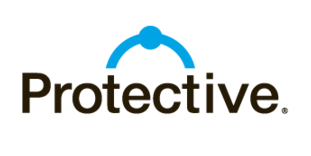The Best Life Insurance Companies in 2026
Free Life Insurance Comparison
Compare Quotes From Top Companies and Save
Secured with SHA-256 Encryption
Kristen Gryglik
Licensed Insurance Agent
Kristen is a licensed insurance agent working in the greater Boston area. She has over 20 years of experience counseling individuals and businesses on which insurance policies best fit their needs and budgets. She knows everyone has their own unique needs and circumstances, and she is passionate about counseling others on which policy is right for them. Licensed in Massachusetts, New Hampshire,...
Licensed Insurance Agent
UPDATED: Mar 2, 2024
It’s all about you. We want to help you make the right coverage choices.
Advertiser Disclosure: We strive to help you make confident insurance decisions. Comparison shopping should be easy. We are not affiliated with any one insurance provider and cannot guarantee quotes from any single provider.
Our insurance industry partnerships don’t influence our content. Our opinions are our own. To compare quotes from many different insurance companies please enter your ZIP code on this page to use the free quote tool. The more quotes you compare, the more chances to save.
Editorial Guidelines: We are a free online resource for anyone interested in learning more about insurance. Our goal is to be an objective, third-party resource for everything insurance related. We update our site regularly, and all content is reviewed by insurance experts.
UPDATED: Mar 2, 2024
It’s all about you. We want to help you make the right coverage choices.
Advertiser Disclosure: We strive to help you make confident insurance decisions. Comparison shopping should be easy. We are not affiliated with any one insurance provider and cannot guarantee quotes from any single provider.
Our insurance industry partnerships don’t influence our content. Our opinions are our own. To compare quotes from many different insurance companies please enter your ZIP code on this page to use the free quote tool. The more quotes you compare, the more chances to save.
On This Page
You’re smart to spend some time searching for the best life insurance company.
Your policy could protect your family even if you can’t be there to provide a steady income. Finding the right policy from the right company will be worth your time.
But with all the variables, the weird terminology, and the contradictory data out there, your search can get frustrating even when you’re diligent.
We can help. Through our research, we have compiled a list of 15 companies we recommend this year. We’ll start by sharing our list, then we’ll talk about insurance types, coverage amounts, and premiums.
Best Life Insurance Companies in the USA
Here are the top 15 life insurance providers in the U.S. for 2021:
- AIG: Best for Term Life
- American National: Best for Online Shoppers
- Banner Life: Best for Complex Health Situations
- Mutual of Omaha: Best for Accidental Death Policies
- MetLife: Best for No Exam Policies
- Transamerica: Best for Smokers
- Protective: Best for Universal Life
- MassMutual: Best for Permanent Policies
- Nationwide: Best for Customizing Coverage
- Principal: Best for Estate Planning
- Lincoln Financial: Best for Cash Value Investing
- Prudential: Best for Larger Death Benefits
- New York Life: Best for Online Tools
- Bestow: Best for Young Shoppers
- Northwestern Mutual: Best for Policy Conversions
1. AIG
Best for Term Life

More than 5 million people trust AIG for life insurance protection.
You could find companies with more specialized policy options, but if you’re looking for simple coverage at a low price, AIG offers a great place to start.
Yes, life insurance increases in price as you age, but AIG’s policies for applicants in their 50s and even into their 60s stay more competitively priced.
Mix in a simple and easy-to-use application, and you get a solid, simple, affordable option for a lot of people.
2. American National
Best for Online Shoppers

Specializing in easy-to-access term life coverage purchased online, American National has revolutionized the way people shop for coverage.
Qualified buyers 45 and younger can even get affordable, medically underwritten coverage with no medical exam. Until recently, this was impossible.
Other applicants will need the exam, but the application process and the quality of coverage — it’s underwritten by MassMutual — still make this a company worth considering.
American National makes the most sense for younger shoppers who need a lot of term coverage. Haven does not sell whole life insurance.
3. Banner Life
Best for Complex Health Situations

Life insurance applicants with health problems often struggle to find affordable coverage. We often direct these shoppers to Banner Life, especially if they have only one health condition.
Banner has affordable term and universal policies, and shoppers find the company more flexible than most with its underwriting guidelines.
For example, even if you have a health condition such as diabetes, Banner Life will look at the broader picture of your life: Do you care for your health by getting regular physicals? Do you have healthy cholesterol levels? Have you smoked in the past 10 years?
Answers to questions such as these can help Banner’s underwriters place your condition within a larger context of overall health rather than labeling you as too risky an applicant.
4. Mutual of Omaha
Best for Accidental Death Policies

A familiar name, more than a century of solid service — these are the reasons many people choose Mutual of Omaha for life insurance.
That’s fine, but we recommend the company for a different reason: It’s accidental death insurance which can pay up to $1 million without a medical exam.
Mutual of Omaha has other quality products, too, such as whole, universal, and term life policies at competitive rates. The company has a broader-than-usual range of universal policy options.
Unlike many of the other insurers on this list, you’d have to buy a Mutual of Omaha product from an agent, and while you can apply online, you’ll still have some old-fashioned paperwork to sign.
5. Brighthouse
Best for No Exam Policies

You’ve probably heard of Brighthouse by another name: MetLife. MetLife now issues personal life insurance policies under the name Brighthouse.
We recommend this company because of its wide range of options that include a no-exam term policy with up to $500,000 in coverage if you’re younger than 50.
If you’ve spent much time shopping for no-exam coverage, you already know how hard it is to buy simplified issue, no-exam coverage with face values more than $350,000.
Brighthouse has competitive rates on these policies, too, though shoppers should remember simplified issue coverage will cost more than medically underwritten policies. If you’re worried about the medical exam, this option could be for you.
6. Transamerica
Best for Smokers
is first-stop shopping for many smokers because the company won’t automatically charge smokers the highest rates.
Yes, smokers will pay more for life insurance even with Transamerica, but the price increase often won’t be as huge.
We also like Transamerica’s policy not to require medical exams for smaller policies — $100,000 or below, in most cases.
Transamerica doesn’t do much online, so you’ll do best to work with an independent agent. The company does have competitive rates across the board.
7. Protective
Best for Universal Life

Clients who want a permanent life insurance policy such as universal life, without the higher rates, like Protective Life’s Custom Choice program.
Custom Choice offers a universal policy that emulates a term life. You’ll get more coverage in the initial years of the policy — usually 10 years or 30 years.
After this period ends, your payment will stay the same, but your coverage will decrease. This set-up imitates the coverage you’d have with buying a term policy followed by a permanent policy later in life.
The benefit? You go through underwriting only once and can keep the coverage for the rest of your life as long as you pay the premiums.
8. MassMutual
Best for Permanent Policies

We mentioned MassMutual above in the entry about Haven Life, which sells MassMutual term policies.
MassMutual itself offers the same top-quality coverage with a much wider variety of products, including whole, variable, and universal permanent policies and easy-to-access term life policies.
In fact, the company has eight different varieties of whole life coverage. Some enhance your policy’s ability to earn cash value; others emphasize lower premiums.
When you’re shopping for permanent life insurance, MassMutual is a great place to start. And, the insurer is owned by its policyholders, so you could receive a dividend each year depending on how the company performs.
9. Nationwide
Best for Customizing Coverage

When we meet shoppers who like to tinker with almost every detail of their coverage, we tend to suggest they try Nationwide Insurance.
Nationwide — the company known across the country for its auto, home, and renters coverage — has so many options, you can easily customize your life insurance coverage.
For example, if you’d like a 20-year term convertible to whole life with a rider to cover your children and a death benefit paid in monthly installments, Nationwide can probably help.
The downside? You’ll need to work with a Nationwide agent or an independent agent who sells Nationwide products. You can’t complete an application online.
10. Principal
Best for Estate Planning

specializes in coverage for people who want to use their policy as an investment vehicle.
Any permanent life insurance policy accumulates a cash value, and the policyholder can usually invest this policy with a universal or variable policy.
Over time this value can help you save for retirement or finance your grandchildren’s higher education.
Principal stands out because the company offers so many strategies for investing your funds. Principal can also help couples who want to buy a single policy to cover both partners.
11. Lincoln Financial
Best for Cash Value Investing

features a wide range of universal policies that invest your insurance’s cash value for added flexibility and savings over time.
As with most insurers, your invested policy value can be connected to a stock index to take advantage of growth within the economy.
Unlike many other insurers, however, Lincoln’s cap on your annual gains is fairly generous at 8.75 percent during the first 10 years.
Customers in their 40s or 50s who want to use a universal policy to enhance their retirement planning often like this feature.
We always recommend working with a financial advisor before buying a universal or variable life insurance policy.
12. Prudential
Best for Larger Death Benefits
By many measures, Prudential is the biggest life insurance company in the nation. Naturally, this giant has a wide range of policy options.
Slowly, Prudential has embraced online sales through its SimplyTerm program, which has an online application process. The company also has more sophisticated products, including a wide range of universal and variable policies.
Across the board, you can find larger death benefits with Prudential policies. The company even has a $75 million term policy available. And, the company has been known to go even higher on a case-by-case basis.
For best results, work with an agent authorized to sell Prudential’s products.
13. New York Life
Best for Online Tools

The success of startups like Haven Life and Bestow Life is showing the classic life insurance brands the importance of online tools and policy access.
New York Life has answered this bell. The company has 175 years of history and a fresh approach for the 21st century.
New York Life has simplified its website and created a portal so customers can manage their policies, make payments, and share documents online.
Someone looking for age-old stability with a new approach should like working with New York Life.
14. Bestow Life
Best for Young Shoppers

is the newest company on this list, but the startup has already given thousands of millennials and other young adults access to simple, term policies online.
The company’s claim that you could be covered within five minutes may be an exaggeration, but not by much. Younger and healthier customers really can get connected with quality, medically underwritten coverage without a medical exam.
Bestow’s process works a lot like Haven Life’s — a series of algorithms can measure your health instead of a battery of blood and urine tests.
Bestow isn’t for more complicated clients who have health conditions or want a wide variety of policy options. If you want good term life coverage quickly, give Bestow a close look.
15. Northwestern Mutual
Best for Policy Conversions
With solid coverage all-around — term, whole, or universal — and award-winning customer service, Northwestern Mutual belongs on just about any customer’s shortlist.
Northwestern also has a full selection of riders so you can customize any kind of policy. Permanent life insurance policyholders can also earn dividends.
We also like Northwestern Mutual’s convertible policy, which provides one of the easiest ways to change a term policy into a universal policy with no fees or medical exam required.
Enter your ZIP code below to view companies that have cheap insurance rates.
Secured with SHA-256 Encryption
DO I NEED LIFE INSURANCE?
Life insurance is personal. Most insurance shoppers need coverage in case they die unexpectedly and can no longer provide income for their families. They worry their death could cause financial hardship for the people they care about.
With a life insurance policy in force, your spouse and children could claim a large sum of money from your insurance company if you died. This payout, which insurers call a “death benefit,” could create an easier financial life for your survivors.
Your family could use this tax-free death benefit to pay off bills, pay off the mortgage, pay for the kids’ college, or any other need.
Other shoppers buy coverage to use as collateral on a business loan or to cover their burial expenses.
And, life insurance can enhance your larger financial plans. A variable or universal policy, for example, can accrue cash over the years, becoming a source of financial flexibility later in life.
WHAT TYPE OF LIFE INSURANCE DO I NEED?
Life insurance works differently depending on the type of policy you buy. You’ll want a policy capable of meeting your specific needs.
Term Life Coverage
Term life policies offer the most basic and affordable coverage. You pay for your policy by keeping your premiums up to date. In exchange, your beneficiary could file a claim for your death benefit if you died.
There is one catch with term life, and it defines the coverage: Your term policy will expire. It’s not permanent. Most term policies last 10, 20, or 30 years. When the term ends, so does your coverage unless you make other arrangements in advance.
For most term customers this catch isn’t really a catch. They need coverage for only 20 or 30 years anyway. Is this true for you?
Think about it: Your financial life will probably look a lot different in two decades than it does right now. If you have kids now, they may be grown and no longer dependent on you financially. If you have a huge mortgage now, it may be paid off by then.
Term lets you buy a lot of coverage now without making a lifetime commitment or adding features that would drive up the cost.
Permanent Life Coverage
Permanent life insurance can cover you for the rest of your life — and it can bring nuances and financial planning tools which term does not offer.
When you first buy a permanent policy your coverage resembles term life — you’re exchanging premiums for coverage. Over time, as you make regular payments, you gain ownership in the policy.
After a couple decades, you own a large portion of the coverage. Many insurers call this your cash value.
Some permanent policies, such as universal life and variable life, let you invest this cash value, allowing it to fluctuate with the markets within some parameters. Regular whole life treats your cash more like a savings account with slow and steady growth.
Later in life, when you own a sizable chunk of your coverage, you could surrender the policy and claim the cash, borrow against the cash value, or continue meeting premiums so your loved ones can access your full death benefit when you die.
Do I Need Term or Whole Life?
Most shoppers need term life insurance. When you have a simple goal — protecting your family from the financial uncertainty your death would cause — simple life insurance will do.
You don’t need a lifetime of coverage or an investment component to provide protection while your family needs it.
When you’re ready to start investing — which we recommend — you’ll have much more freedom to invest if you do it separately from your life insurance.
Who Needs Permanent Insurance?
Very few of our clients need permanent life insurance. We’ll recommend it when a client regularly maxes out 401(k) and IRA contributions and wants another tax-preferred tool. Whole life’s cash value can provide this avenue.
Permanent life insurance can also fill a niche for high-earners who have specific estate planning needs, especially when they expect to pay estate taxes.
And, whole life policies make sense with smaller amounts such as burial and or guaranteed issue.
Unless you have a specific need for a more expensive permanent life insurance policy, we recommend sticking with simple and affordable term life insurance.
We’ll also recommend guaranteed universal life, which is permanent coverage that resembles term life in its simplicity and affordability.
WILL I NEED A MEDICAL EXAM TO GET INSURANCE?
To get the lowest price, most shoppers need a life insurance medical exam. Why? Because the medical exam tells your insurer so much about your health. Health data helps underwriters assess your risk of dying prematurely.
It sounds morbid to some people, but this is how life insurance works; it’s how all insurance works. Your auto insurance will cost more after you get a speeding ticket, for example.
Life insurance costs more when you’re less healthy. By letting a medical exam prove you’re at low-risk for developing a serious medical condition and passing away, you can pay less for life insurance.
But if you know your medical exam would reveal some problems, you should consider a no-exam policy. No-exam insurance relies on questionnaires and online data to assess your risk of mortality.
This holds true for permanent or term life insurance most of the time.
Types of No-Exam Life Insurance
If you’ve decided to go with no-exam life, be sure you’re getting the type of no-exam policy you need:
- Simplified Issue: You’ll take a detailed questionnaire about your health, and underwriters will check databases for red flags. You can still get decent coverage with simplified issue — both term or whole.
- Guaranteed Issue: Unless you have a terminal illness or live in a long-term care facility, you’ll probably qualify for guaranteed issue. You’ll probably have a waiting period for up to three years before your coverage is fully available. This coverage is super expensive because the insurer takes on a lot of risk. And coverage amounts will be low.
- Burial Insurance: These small whole-life policies can provide enough coverage for your final expenses.
Read more: Top Long-Term Care Insurance Companies
Enter your ZIP code below to view companies that have cheap insurance rates.
Secured with SHA-256 Encryption
LIFE INSURANCE FOR HIGH-RISK SHOPPERS
People with chronic health conditions have trouble finding affordable life insurance. Sometimes they struggle to get covered at all.
People with diabetes, COPD, or a history of cancer often fall into this category. Applicants with dangerous jobs and hobbies get classified as high-risk applicants, too.
For years high-risk applicants paid astronomical premiums or simply didn’t get life insurance. Now, specialists can help you find better options.
High-risk life insurance still costs more, but finding the right insurer for your specific brand of risk — whether it’s high cholesterol or a dangerous job — can open the market for shoppers who need coverage.
HOW TO PAY LOWER LIFE INSURANCE PREMIUMS
As we’ve already covered, the best life insurance companies assess your risk of dying and assign premiums to match. So your age, health, job, and hobbies will influence your premiums.
Other factors matter, too, and when you know how premiums work, you can take steps to lower yours. Consider:
- Credit Score: Your credit score matters because insurers have found a correlation between risky finances and risky lifestyles. A lower credit score can lead to higher premiums. This sounds unfair, but the statistics support this premise, and raising your score could lower your rates.
- Driving Record: Taking risks on the road — as evidenced by moving traffic violations or collisions — equals higher life insurance premiums. Drive safely and you could lower your premiums.
- Smoking: People who smoke pay a lot more for life insurance for obvious reasons: doctors connect smoking to all sorts of health problems which lead to an early death.
- Factors Already Mentioned: Dangerous jobs such as roofing and piloting small aircraft increase premiums. High-risk hobbies like skydiving or SCUBA diving also drive up costs.
- Type of Life Insurance: Term life costs a lot less than permanent life insurance. You can normally save a ton by sticking with basic term.
- Coverage Amount: More coverage costs more for most policies. Getting just enough and not too much coverage will help control costs.
HOW MUCH LIFE INSURANCE SHOULD I BUY?
You should buy just enough life insurance. Too much coverage drives up your premiums. Not enough coverage could leave your beneficiary with too many tough financial decisions.
So how much is just enough? Let’s find out.
- To Get a Ballpark Estimate: Multiply your annual salary by 10. We’re assuming you’re buying coverage to protect your family in this scenario.
- Adjust for Reality: You may want to increase your coverage amount if you have a lot of children, more debt than usual, or plans to buy a vacation home. You could buy less coverage if you have less debt and fewer dependents.
- Decide on a Term: Most people need term life insurance, so how long should your term last? Think about how long you’ll have your current financial obligations and go from there.
Enter your ZIP code below to view companies that have cheap insurance rates.
Secured with SHA-256 Encryption
CAN I TRUST LIFE INSURANCE?
Life insurance is a contractual agreement between you and your insurance company. It’s based on a promise you both make.
How do you know your life insurer will live up to its promise to pay your death benefit if you died?
Life insurance ratings agencies can help you decide. Life insurance ratings agencies, such as A.M. Best and Moody’s, measure insurers’ financial stability and issue grades.
Higher grades — A, A+, AAA, Aaa, etc. — indicate more stable finances. Stability helps a company keep its long-term promises. You should try to stay away from companies with Bs or lower.
But, as a consumer, you don’t have to predict the future of your life insurance company. If something goes wrong and your company doesn’t have the resources to pay your claim, your beneficiary will have some other safeguards.
Other insurers will step in to help, for example.
Consumer Ratings for Life Insurance Companies
A company’s stability measures its ability to pay future claims, but there’s more to quality than a healthy balance sheet.
How your company deals with its customers matters, too. To measure customer satisfaction, check sites like TrustPilot and ConsumersAdvocate.
Keep in mind reviews tend to skew to the negative — upset customers are far more likely to write a review. If you see trends of the same issues arising in various reviews, however, you may want to pay attention.
Online Tools to Buy and Manage Life Insurance
Your shopping style may even be a factor as you compare life insurance companies. You can now buy life insurance online, from start to finish.
Most companies have an online application but eventually witch to more traditional paperwork as you finalize coverage.
Still other companies may not let you buy life insurance directly. They may sell only through licensed agents.
If you prefer face-to-face agencies — or if you prefer getting coverage more quickly online — you can find a quality insurer specializing in your shopping style.
HOW DO YOU BUY LIFE INSURANCE?
When you’re ready to buy coverage, you should remember one piece of advice: Shop around. Compare several quotes. You can get started comparing here.
When you have special underwriting concerns such as a chronic health condition or a dangerous job, consider contacting us directly for a consultation.
We can also help when you need to set up life insurance for your business partnership or if you’re transferring existing coverage.
Should I Use Life Insurance as an Investment?
Permanent life insurance creates opportunities for investment over time. Life insurance shouldn’t replace your 401(k) or IRAs, but it can enhance your future planning and your estate planning.
Life insurance can also have tax advantages. Work with a certified financial planner to strategize your individual needs or feel free to ask questions.
Where Do I Buy Life Insurance?
More and more providers sell coverage online. If you need a simple term life policy, you could have one in force later today or tomorrow.
When you have more complicated needs — or if you’d rather work with someone face-to-face — an independent life insurance agent can help you access the best coverage available.
Independent agents sell many different types of policies from multiple carriers; they aren’t limited to one or two product lines.
When Should I Get Rid of My Life Insurance?
Your life insurance policy should provide a sense of security. It should help answer your “what-if” and “worst-case-scenario” financial questions if the unexpected happened and your family had to rebuild a new life without you.
Life insurance tends to be a good value, especially if you buy the policy when you’re young and healthy. So many people want to keep their coverage indefinitely.
You could consider going without coverage if you have other ways to create this peace of mind — savings, investments, pensions, and the like.
WHEN SHOULD I BUY LIFE INSURANCE?
Life insurance — especially term coverage — costs less when you’re younger and healthier.
If you don’t have coverage in place, and you have people who depend on you financially, now is the best time to buy it.
You can also see in-depth reviews of all of the life insurance companies that we have researched on our full List of Life Insurance Companies in the U.S.

Enter your ZIP code below to view companies that have cheap insurance rates.
Secured with SHA-256 Encryption
Kristen Gryglik
Licensed Insurance Agent
Kristen is a licensed insurance agent working in the greater Boston area. She has over 20 years of experience counseling individuals and businesses on which insurance policies best fit their needs and budgets. She knows everyone has their own unique needs and circumstances, and she is passionate about counseling others on which policy is right for them. Licensed in Massachusetts, New Hampshire,...
Licensed Insurance Agent
Editorial Guidelines: We are a free online resource for anyone interested in learning more about insurance. Our goal is to be an objective, third-party resource for everything insurance related. We update our site regularly, and all content is reviewed by insurance experts.



